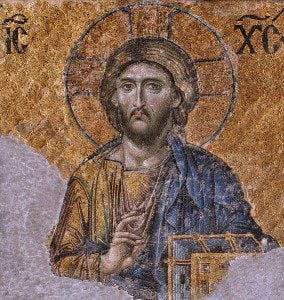
My theology class at Multnomah Biblical Seminary/Multnomah University is going through definitions of Christology. The process of crafting and refining and finalizing statements on Jesus’ identity in view of Christian Scripture and the language available to church leaders was often arduous and exhausting if not exhaustive. While there is much to be gained from these definitions, such as with the Chalcedonian formula, we must never think that if we have a handle on them, we have a handle on him.
I wonder if the point ascribed to Jonathan Edwards is applicable here. To paraphrase the point, “One cannot ultimately define love; one can only describe it.” So, too, with Jesus? I think so: One cannot ultimately define him. One can only describe him.
There is something inviting about describing someone you admire and love. While I could give a form of a definition of my wife, describing her story, including her many qualities, is something far more striking to me. Even more so with Jesus.
How might you describe Jesus? Please don’t fixate on questions about how can Jesus be both divine and human. Consider who is this person as divine and human. As Jesus asked Peter, “Who do you say I am?”
Who is he, and how have you encountered him? And how has he encountered you? Who is this divine Word who did not become flannel graph or a meme, but rather, flesh and blood?
In our Moralistic Therapeutic Deistic Age, it is tempting to put Jesus as a definition in a book on a shelf until we want his help, like a deity on demand. When we operate like this, we shortchange ourselves, for we limit how we might engage him.
We only truly worship that which we cannot commodify, that which we find mysterious. Jesus is the revealed mystery of God in the flesh. If you and I are going to ask a “how” question, consider asking and answering “How is Jesus mysterious to you?” Or “What is it about God becoming this human that inspires and invites you to worship him today?” Open questions like these might just lead to answers that never end.












